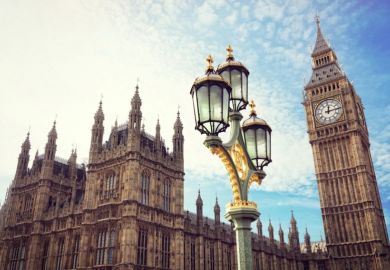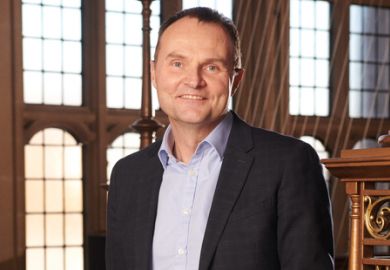Boris Johnson’s departure from 10 Downing Street offers fresh hope that the UK may join Horizon Europe, though British research may still suffer many more months of damaging uncertainty, senior scientists and policy experts have said.
As the prime minister prepares to leave office – albeit not until after a Conservative leadership contest – there was some optimism that his removal might unblock negotiations regarding the UK’s ongoing exclusion from the European Union’s flagship €90 billion (£77 billion) research scheme.
Brussels has indicated that it will not admit the UK into Horizon Europe unless it drops forthcoming legislation to rewrite the rules on trade between Northern Ireland and the British mainland agreed in the Brexit deal. French president Emmanuel Macron is also known to distrust Mr Johnson personally, so the prime minister’s exit may remove another major barrier to UK association.
“The main issue has been with a lack of trust in the UK’s political leadership, so in this sense there is potential for a solution,” said Carsten Welsch, head of the department of physics at the University of Liverpool, who was recently forced to give up leadership of a €2.6 million EU-funded Marie Skłodowska-Curie Actions doctoral network that would have brought some of Europe’s leading PhD researchers to Liverpool.
“If anyone came in now, as caretaker prime minister, and would clearly say ‘the UK will respect its international treaties and not consider breaking the Northern Ireland protocol’, then this could change things quickly into Horizon association,” said Professor Welsch.
John Womersley, former head of the European Spallation Source, a major EU-funded physics project based in Sweden, said Mr Johnson’s exit “opens the possibility, in many scientists’ minds, that any new prime minister may take a more conciliatory line on the Northern Ireland protocol, which may unlock things with the European Commission”.
But his resignation would be “both good and bad”, added Professor Womersley, now based at the University of Oxford. “That kind of a policy shift is far from guaranteed: imagine Liz Truss as prime minister,” he said.
“But precisely because the possibility of association may now look more achievable, it kind of guarantees several more months of not knowing or doing anything, which is itself bad for British science,” Professor Womersley continued, adding that a “new chancellor may decide to take a tough line and claw back the funding that Rishi Sunak had set aside for participation in Horizon Europe”.
Those concerns over the state of limbo faced by UK science were echoed by Graeme Reid, chair of science and research policy at UCL, particularly given the growing uncertainty over support and timelines for the UK-based alternative to Horizon Europe, known as Plan B.
“Today, we are in a particularly unattractive place with no prospect of associating to Horizon Europe but no path to Plan B,” said Professor Reid.
“Let’s hope that some fresh political faces can move the situation forward,” he continued, adding that UK science was “hurtling towards a huge underspend on research and innovation”.
James Wilsdon, digital science professor of research policy at the University of Sheffield, said it seemed unlikely that details on Horizon Europe-Plan B transition arrangements, due to be published before the parliamentary summer recess on 21 July and then “with a fuller Plan B strategy to follow in the autumn, would now appear on schedule”.
“If Johnson goes today, and a transition leadership under Dominic Raab takes over, then we may still see these details emerge in the next two weeks – as well as other research policy announcements scheduled for July, including the new Nurse review, Grant review of UK Research and Innovation and Tickell review of research bureaucracy,” he said.
“But equally we may now see all of these announcements pushed back until the autumn, which will intensify the pressure and uncertainty already being felt by UK researchers working on EU-funded projects.”
Mr Johnson’s exit – as well as the resignation of Michelle Donelan, who spent less than 36 hours as education secretary – may also push back the timetable for proposed legislation on protecting free speech on campus, which she has championed.
Prior to the latest upheaval in Downing Street, it was also expected that the government would confirm plans to cap student numbers in England by using outcomes measures currently under development, which include the proportion of graduates going into “managerial or professional employment”, and to introduce a minimum entry requirement, expected to be set at two E grades at A level, within the next two weeks.
The government’s collapse may now make the sector more hopeful of lobbying against these reforms, which have been strongly criticised by Universities UK.
Register to continue
Why register?
- Registration is free and only takes a moment
- Once registered, you can read 3 articles a month
- Sign up for our newsletter
Subscribe
Or subscribe for unlimited access to:
- Unlimited access to news, views, insights & reviews
- Digital editions
- Digital access to THE’s university and college rankings analysis
Already registered or a current subscriber?









